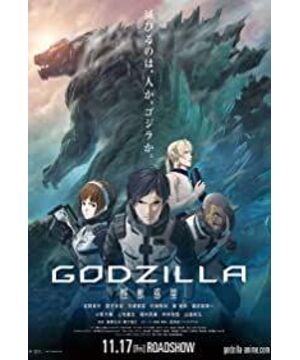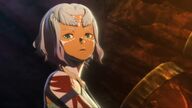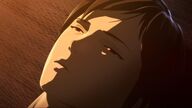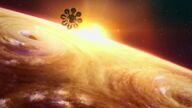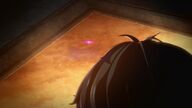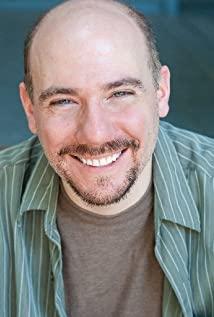Since "Magic Girl Madoka", people have enshrined Xu Yuanxuan on the altar, and friends who understand ACG culture, can be said to love and hate Xu Yuanxuan, the "fighter of love". In Xu Yuanxuan's works, Bed ed, which often appears, makes countless audiences nervous about his work as a screenwriter, for fear that their favorite character will unfortunately die prematurely. This time, "Godzilla Monster Planet", which Xu Yuanxuan served as the screenwriter, is an animation work with a strong personal touch of Xu Yuanxuan. Reality, grandeur, and emptiness are the sharp features of this work, and it is also the continuation of Xu Yuan's mysterious works. The style of realism is the unique charm of Xu Yuanxuan. No matter what the subject matter of the work, Xu Yuanxuan strives to bring a sense of immersion. Realism is a large part of the reason why the audience buys it. His scripts are usually quite comprehensive and grand. The world view, and he is good at combining the characters, the storyline with the background, and the world view, which makes his works wonderful and can reasonably set the fate of the characters. In "Godzilla Monster Planet", Xu Yuanxuan used the doomsday setting. At the beginning, he used the protagonist's personal perspective to narrate, directly narrating the background of the times and describing social civilization and people's laziness. It sets the stage for many unintelligible episodes that follow. It is fitting to sum it up with "fiction is the greatest truth." To sum up Xu Yuanxuan's works by "grand", in all likelihood, they can correspond. In the text adventure game "fate/stay the night" related work "fate/zero", Xu Yuanxuan's use of Nasu Mushroom's huge "Moon World" setting expanded the story line of the Holy Grail War to the apex. In "Godzilla Monster Planet", Xu Yuanxuan's grandeur is not only reflected in the simple world view, but also in his creation of a terrifying atmosphere and the re-innovation of the classic image of "Godzilla". "Big" obsession. For the horror of "Godzilla", compared to the cinematic blockbuster, the form of animated films is inherently unrealistic, but in "Godzilla" In "Monster Planet", the film cleverly did not directly show the horror and danger of "Godzilla", but only used adults' taboos about returning to the earth, the protagonist's recollection of childhood vague outlines, and the meticulous planning when arranging battles, these tedious plots. In summary, it depicts the horror of "Godzilla". Unlike the movie version of "Godzilla", Xu Yuanxuan did not follow many of the settings of the previous version, neither regarded "Godzilla" as a "savior", nor regarded it as an aberration of human nuclear pollution, Instead, "Godzilla" is compared to "the terminator of human civilization", a "executor of the proud" that no higher civilization can pass. Such a setting is widely used in disaster films, and in the animation industry. , but because of the default market audience of "animation", it is regarded as a "box-office killer". For example, the TV animation "Slashing the Red Eyes" almost died because the plot was too tragic. This happens to be the feature of Xu Yuanxuan's works - "sense of nothingness". In previous works, Xu Yuanxuan would set a lofty and achievable goal or long-cherished wish for the protagonist. In the progress of the plot, this dream will be ruthlessly trampled on by reality, so that in the end there will always be a process of "blackening" the character's image collapse. In essence, it is to reflect on the value and meaning behind people's behavior. The final answer is nothing but nothingness. In the film, the protagonist questions the meaning of life, and when the protagonist realizes his wish to "kill Godzilla", he discovers the real "Godzilla". They are powerless at the end of the plot. At the end of the film, the protagonist saves his life and makes a vow of "revenge" when "Godzilla" destroys humanity. It is certain that the protagonists will rise again in the latter parts of the "Trilogy", and continue to fight for the restoration of human civilization. Ra, the ultimate killer symbolizing humanity's highest achievement, will appear, but as at the end of "Monster Planet", there must be a deeper despair within despair being torn apart from its shell. Crimson Eye", almost died because the plot was too tragic. This happens to be the feature of Xu Yuanxuan's works - "sense of nothingness". In previous works, Xu Yuanxuan would set a lofty and achievable goal or long-cherished wish for the protagonist. In the progress of the plot, this dream will be ruthlessly trampled on by reality, so that in the end there will always be a process of "blackening" the character's image collapse. In essence, it is to reflect on the value and meaning behind people's behavior. The final answer is nothing but nothingness. In the film, the protagonist questions the meaning of life, and when the protagonist realizes his wish to "kill Godzilla", he discovers the real "Godzilla". They are powerless at the end of the plot. At the end of the film, the protagonist saves his life and makes a vow of "revenge" when "Godzilla" destroys humanity. It is certain that the protagonists will rise again in the latter parts of the "Trilogy", and continue to fight for the restoration of human civilization. Ra, the ultimate killer symbolizing humanity's highest achievement, will appear, but as at the end of "Monster Planet", there must be a deeper despair within despair being torn apart from its shell. Crimson Eye", almost died because the plot was too tragic. This happens to be the feature of Xu Yuanxuan's works - "sense of nothingness". In previous works, Xu Yuanxuan would set a lofty and achievable goal or long-cherished wish for the protagonist. In the progress of the plot, this dream will be ruthlessly trampled on by reality, so that in the end there will always be a process of "blackening" the character's image collapse. In essence, it is to reflect on the value and meaning behind people's behavior. The final answer is nothing but nothingness. In the film, the protagonist questions the meaning of life, and when the protagonist realizes his wish to "kill Godzilla", he discovers the real "Godzilla". They are powerless at the end of the plot. At the end of the film, the protagonist saves his life and makes a vow of "revenge" when "Godzilla" destroys humanity. It is certain that the protagonists will rise again in the latter parts of the "Trilogy", and continue to fight for the restoration of human civilization. Ra, the ultimate killer symbolizing humanity's highest achievement, will appear, but as at the end of "Monster Planet", there must be a deeper despair within despair being torn apart from its shell.
View more about Godzilla: Planet of the Monsters reviews


